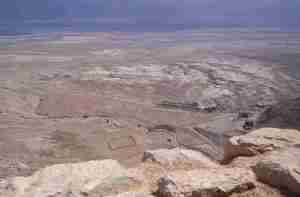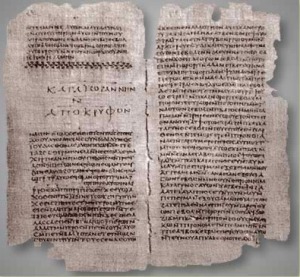“Do you suppose that you will enter the Garden without first having suffered like those before you?” (Quran 2:214, Haleem translation).
If God is both all good and all powerful, why does evil exist? That question strikes at the very way a person views the world. Yet in all of our lives, at some point we find ourselves asking this question. After all along this journey, we find much suffering. We get sick, as do our loved ones. People come in and out of our lives. Natural disasters and human caused calamities add to this suffering. Recently with the Israeli/Palestinian conflict many people are asking this question, not just due to the killing, but because of all of the negativity it is bringing out in people. I have myself wrestled with this problem for most of my life and have come to the conclusion that bad things happen, not for anyone reason, but for several reasons.
I must now make a distinction between things that are bad and things that seem bad (I will examine both).“Anything good that happens to you [Prophet] is from God; anything bad is [ultimately] from yourself.” (Quran 4:79, Haleem Translation). Everything that is truly bad originates from ourselves, these things serve to wake us up or to punish us.
First bad things serve as a wake up call, to wake us up from error, to bring us back to God when we go astray. A good example of this can be found in the following story located in the Quran.
“We have tried them as We tried the owners of a certain garden, who swore that they would harvest its fruits in the morning and made no allowance [for the Will of God]: a disaster from your Lord struck the garden as they slept and by morning it was stripped bare, a desolate land. Still they called each other at daybreak, ‘Go early to your field if you wish to gather all its fruits,’ and went off, whispering, ‘Make sure no poor person enters the garden today!’––they left early, bent on their purpose– but when they saw the garden, they said, ‘We must have lost our way! No– we are ruined!’ The wisest of them said, ‘Did I not say to you, “Will you not glorify God?”’– they said, ‘Glory be to God, Our Lord! Truly, we were doing wrong!’– and then they turned to each other in mutual reproach. They said, ‘Alas for us! We have done terrible wrong, but maybe our Lord will give us something better in its place: we truly turn to Him in hope.’ Such is the punishment [in this life], but greater still is the punishment in the Hereafter, if only they knew.” (Quran 68:17-33, Haleem translation)
In this story the owners of the garden lost their way, they forgot to give God glory and thanks, and may have neglected to give alms to the poor. Because of their faults, God placed a burden upon them. When they went to their garden, they found that it was stripped bare. In the modern world of grocery stores, food stamps, and disaster relief, this problem does not seem that bad, but in the Ancient world this would have been catastrophic, this would have meant starvation. Faced with this problem, the owners of the garden knew they have done wrong, and so decided to turn back to God.
Paul, then known as Saul, was a fervent persecutor of the early Jesus movement, he even played a role in the killing of Stephen, the first of the Jesus movement to be killed (Acts 7:58). While on the way to Damascus to persecute the movement there, he was struck blind (Acts 9:1-31). This was a very bad thing to befall Paul. To be born blind is a tragedy, but to have sight and lose it is a greater one. However because of this event, Paul reformed himself, and went from being one of the greatest opponents of the early Jesus movement, to one of it’s greatest proponents.
David was the greatest leader to ever grace the Kingdom of Israel. He was a poet, warrior, and a King. He started off as the youngest son of a shepherd, and he found favor with God. Many look to his rule as the Golden Age of Israel, and yet he was not immune to having to suffer a wake up call. He had an affair with Bathsheba, the wife of one of the soldiers in the Israelite army, Uriah. Due to his transgressions, Bathsheba had become pregnant and to cover his mistake he has Uriah killed (2 Samuel 11:2-24). God replies to David by sending the prophet Nathan to deliver a message, and the following take place:
“And the Lord sent Nathan to David. He came to him, and said to him, ‘There were two men in a certain city, one rich and the other poor. The rich man had very many flocks and herds; but the poor man had nothing but one little ewe lamb, which he had bought. He brought it up, and it grew up with him and with his children; it used to eat of his meager fare, and drink from his cup, and lie in his bosom, and it was like a daughter to him. Now there came a traveler to the rich man, and he was loath to take one of his own flock or herd to prepare for the wayfarer who had come to him, but he took the poor man’s lamb, and prepared that for the guest who had come to him.’ Then David’s anger was greatly kindled against the man. He said to Nathan, ‘As the Lord lives, the man who has done this deserves to die; he shall restore the lamb fourfold, because he did this thing, and because he had no pity.’
Nathan said to David, ‘You are the man! Thus says the Lord, the God of Israel: I anointed you king over Israel, and I rescued you from the hand of Saul; I gave you your master’s house, and your master’s wives into your bosom, and gave you the house of Israel and of Judah; and if that had been too little, I would have added as much more. Why have you despised the word of the Lord, to do what is evil in his sight? You have struck down Uriah the Hittite with the sword, and have taken his wife to be your wife, and have killed him with the sword of the Ammonites. Now therefore the sword shall never depart from your house, for you have despised me, and have taken the wife of Uriah the Hittite to be your wife. Thus says the Lord: I will raise up trouble against you from within your own house; and I will take your wives before your eyes, and give them to your neighbor, and he shall lie with your wives in the sight of this very sun. For you did it secretly; but I will do this thing before all Israel, and before the sun.’ David said to Nathan, ‘I have sinned against the Lord.’ Nathan said to David, ‘Now the Lord has put away your sin; you shall not die. Nevertheless, because by this deed you have utterly scorned the Lord, the child that is born to you shall die.’” (2 Samuel 12:1-14, NRSV)
David had committed his sin and had gone astray, and this woke him up from his error. If not for this, then he would have been killed by God’s punishment.
Secondly, bad things happen as punishment from God. When we exceed all bounds and go far astray, we receive divine punishment. This punishment may happen in this life or the hereafter.
The following narrative from the Quran, is a very clear example of a people whom have gone far astray and God unleashing his punishment upon them,
“To the Thamud, We sent their brother, Salih. He said, ‘My people, worship God. You have no god other than Him. It was He who brought you into being from the earth and made you inhabit it, so ask forgiveness from Him, and turn back to Him: my Lord is near, and ready to answer.’ They said, ‘Salih, We used to have such great hope in you. Will you forbid us to worship what our fathers worshiped? We are in grave doubt about what you are asking us to do.’ He said, ‘My people, just think: if I did have clear proof from my Lord, and if He had given me mercy of His own, who could protect me from God if I disobeyed Him? You would only make my loss greater. My people, this camel belongs to God, a sign for you, so leave it to pasture on God’s earth and do not harm it, or you will soon be punished.’ But they hamstrung it, so he said, ‘Enjoy life for another three days: this warning will not prove false.’ And so, when Our command was fulfilled, by Our mercy We saved Salih and his fellow believers from the disgrace of that day. [Prophet], it is your Lord who is the Strong, the Mighty One. The blast struck the evildoers and they lay dead in their homes, as though they had never lived and flourished there. Yes, the Thamud denied their Lord– so away with the Thamud! (Quran 11:61- 68, Haleem translation)”
The disbelievers of Thamud had went far astray, God had blessed them with a sign, the She Camel, yet they disrespected this blessing by killing her. It was because of this that God’s punishment fell upon them.

The Thamud built their buildings by hewing them into the side of mountains. Despite the eloquence of their buildings, because they disrespected God, they were destroyed, it was as if they never existed.
In the New Testament, an example God’s punishment can be found in the book of Acts, in the following passage,
“But a man named Ananias, with the consent of his wife Sapphira, sold a piece of property; with his wife’s knowledge, he kept back some of the proceeds, and brought only a part and laid it at the apostles’ feet. ‘Ananias,’ Peter asked, ‘why has Satan filled your heart to lie to the Holy Spirit and to keep back part of the proceeds of the land? While it remained unsold, did it not remain your own? And after it was sold, were not the proceeds at your disposal? How is it that you have contrived this deed in your heart? You did not lie to us but to God!’ Now when Ananias heard these words, he fell down and died. (Acts 5:1-5, NRSV)”
The most famous stories of God’s punishment in the entire Hebrew Bible, is the story of the Sodom and Gomorrah.
“The two angels came to Sodom in the evening, and Lot was sitting in the gateway of Sodom. When Lot saw them, he rose to meet them, and bowed down with his face to the ground. He said, ‘Please, my lords, turn aside to your servant’s house and spend the night, and wash your feet; then you can rise early and go on your way.’ They said, ‘No; we will spend the night in the square.’ But he urged them strongly; so they turned aside to him and entered his house; and he made them a feast, and baked unleavened bread, and they ate. But before they lay down, the men of the city, the men of Sodom, both young and old, all the people to the last man, surrounded the house; and they called to Lot, ‘Where are the men who came to you tonight? Bring them out to us, so that we may know them.’ Lot went out of the door to the men, shut the door after him, and said, ‘I beg you, my brothers, do not act so wickedly. Look, I have two daughters who have not known a man; let me bring them out to you, and do to them as you please; only do nothing to these men, for they have come under the shelter of my roof.’ But they replied, ‘Stand back!’ And they said, ‘This fellow came here as an alien, and he would play the judge! Now we will deal worse with you than with them.’ Then they pressed hard against the man Lot, and came near the door to break it down. But the men inside reached out their hands and brought Lot into the house with them, and shut the door. And they struck with blindness the men who were at the door of the house, both small and great, so that they were unable to find the door… Then the Lord rained on Sodom and Gomorrah sulphur and fire from the Lord out of heaven; and he overthrew those cities, and all the Plain, and all the inhabitants of the cities, and what grew on the ground.” (Genesis 19:1-11, 24-25, NRSV)

This area, just north of the Dead Sea, is where people believe Sodom and Gormorrah where located before being utterly destroyed.
Some misinterpret the punishment in this story of Sodom and Gomorrah as a result of homosexual practices, when in fact they were being punished because of how they treated their guests. Directly before this story there is the narrative of Abraham with the three angelic guests, in which he treats them with great hospitality, on of the most important cultural norms in the ancient Middle East. The story of Sodom and Gomorrah serves as a foil, which shows people how not to treat travelers and foreigners who reside with you, whom were often poor,
“This was the guilt of your sister Sodom: she and her daughters had pride, excess of food, and prosperous ease, but did not aid the poor and needy.” (Ezekiel 16:49, NRSV)
Next are there are things that seem bad, but are really good. These things, although they may appear bad, actually serve to bring about a greater good, like a sever thunderstorm, ending a drought.
Evil happens sometimes to bring about great things, to sometimes even to save our lives. The greatest example of this, is a story in which Islam, Christianity, and Judaism all share, the story of Joseph, the son of Jacob. All free faiths agree on the basics of this story.
Joseph is the favorite son of his father, Jacob. Joseph has dreams that he will one day be bowed to by his brothers (Quran 12:4-5, Genesis 37:5-11). His brothers become very jealous of him and plot to kill him, but the eldest convinces the rest of the brothers not to kill him but to sell him to throw him into a pit, where he is picked up by a caravan (Quran 12:5-10,15-19, Genesis 37:12-27). Joseph is eventually sold into slavery in Egypt and bought by the captain of the Egyptian guard. (Quran 12:20-21, Genesis 37:28, 39:1) In his house, God raises Joseph’s rank to were he is second only to his master. This would not last for Joseph and as a result of the wife of the captain of the Egyptian guard trying to seduce Joseph, he is placed in prison (Quran 12:21-35, Genesis 39:2-20). There once again he is raised to the highest rank possible. He meets two of the King of Egypt’s servants, whom are very trouble by dreams they have had. Joseph interprets both of their dreams, telling them that one will be restored to their former position, but the other will be put to death. Joseph tells the one that will be left alive to mention him to the King, but he forgets too(Quran 12: 36-32, Genesis 39:21-40:23). Some time later the king has two dreams which greatly trouble him, but no one is able to interpret them. Then his servant remembers Joseph, who interprets the dreams as meaning there will come seven years of plenty followed by seven years of famine (Quran 12:43-53, Genesis 41:1-32). So the king placed Joseph in charge of the nations store houses and Joseph’s rank in Egypt was second only to the King (Quran 12:55-56, Genesis 41:39-44). When the famine came, Joseph’s brothers came to buy grain for their families. Eventually Joseph reveals himself to them and invites them and all of their families to come live in Egypt where they will have plenty to eat and be able to live. (Quran 12:58-100, Genesis 42:1-46:34)

Famine was almost equivalent with death in the ancient world.
It is certainly horrible to be sold into slavery and even worse to be sold into slavery by your brothers. Then when things started to turn around for Joseph, he was unjustly thrown into prison. These all are terrible things to befall a person. However like a mother to be, whom cannot bring a life into this world without experiencing labor pains or an oyster which cannot produce a pearl without suffering the pain caused by the sand that gets caught in its shell, Joseph and his family could not have been saved without suffering through those hardships. Had he not been sold as a slave, he never would have went to Egypt, had he never would have went into the house of the Captain of the Egyptian Guard’s house, he never would have been imprisoned, and without being imprisoned he never would have found favor with the King of Egypt.
God also allows bad things to happen to show us and the world his wonders, to inspire both awe and fear in us. The fear of God is seen as positive in all three religions. Judaism and Christianity view it as the origin of wisdom,
“The fear of the LORD is the beginning of wisdom;” (Psalm 111:10, NRSV).
It is such a fundamental aspect of the Israelite wisdom tradition that the same verse, or slight variations appear multiple times through out the Psalms and Wisdom literature. In Islam the fear of Allah is believed to be so powerful, it can even grant the worst sinner Allah’s forgiveness,
“Abu Huraira reported Allah’s Messenger (may peace be upon him) as saying that a person committed sin beyond measure and when he was going to die, he left this will: When I die, burn my dead body and then cast the ashes to the wind and in the ocean. By Allah, if my Lord takes hold of me, He would torment me as He has not tormented anyone else. They did as he had asked them to do. The Lord said to the earth: Return what you have taken. And he was thus restored to his original form. Allah said to him: What prompted you to do this? He said: My Lord, it was my fear or my awe of you, and because of that Allah forgave him.” (Hadith of Sahih Muslim Book 37, Number 6638)
By far the most famous story of God causing bad things to happen to inspire fear and awe of himself in people, is a story that is central to all three Abrahamic faiths, the story of the Exodus. There are some slight variations between the story as it is found in the Hebrew Bible or Old testament and the Quran, but the over all story is the same.
Some time after the death of Joseph, a new king arose over Egypt and he enslaved the Israelites. The Israelites suffered under this bondage for quite some time. They were not only afflicted by bondage, but they were subjected to other tortures as well, such as the killing of all of their first born sons.(Quran 28:4, Exodus 1:8-22) After some time, God sent Moses and his brother Arron to demand that Pharaoh set the Israelites free (Quran 28:29-35, Exodus 5:1). Pharaoh refuses this and as a result Egypt is struck by plagues, which include the deaths of the Egyptians crops and live stock, the Egyptians being struck with boils, and lastly the deaths of their first born sons (Quran 7:133-136, Exodus 7:14-12:36). Finally Pharaoh decides to let the Israelites go free. He then reneges on his promise and pursues them with his army. God splits the sea to allow the Israelites to cross, yet when Pharaoh and his army follows suit, God closes the sea and utterly destroys them all. (Quran 7:136, Exodus 12:31-14:31)
It is beyond horrible that a race of people should be enslaved and to have their first born children mercilessly slaughtered, but because of this God was able to execute his judgment upon Pharaoh. It was by his many signs and mighty wonders that God liberated the Israelites from their Egyptian oppression. Why did an all powerful God not just simply will it to be that they were never slaves? To demonstrate to the world his power and to instil in us fear and awe of him. Both the Quran and the Bible agree what God did to Pharaoh and the mighty nation of Egypt was to make himself known through out the whole earth,
“Then the LORD said to Moses, “Rise up early in the morning and present yourself before Pharaoh, and say to him, ‘Thus says the LORD, the God of the Hebrews: Let my people go, so that they may worship me. For this time I will send all my plagues upon you yourself, and upon your officials, and upon your people, so that you may know that there is no one like me in all the earth. For by now I could have stretched out my hand and struck you and your people with pestilence, and you would have been cut off from the earth. But this is why I have let you live: to show you my power, and to make my name resound through all the earth.” (Exodus 9:13-16 NRSV)
“We took the Children of Israel across the sea. Pharaoh and his troops pursued them in arrogance and aggression. But as he was drowning he cried, ‘I believe there is no God except the one the Children of Israel believe in. I submit to Him.’ ‘Now? When you had always been a rebel, and a troublemaker! Today We shall save only your corpse as a sign to all posterity.” (Quran 7:90-92, Haleem translation)
God also allows evil to exist to help us grow. There can be no growth in a static world, only in a dynamic one, where change is not only possible, it is the very essence of existence. This change is not just change for the better, but just as often is change for the worse. The best story to epitomize this, is again a story that is shared by all three faiths, The story of Adam and Eve and their expulsion from the Garden. Again there are differences between the stories of the Bible and the Quran, but the main points are the same.
God creates both Adam and Eve and places them in the Garden (Quran 3:59, Genesis 2:7-15). There they both have a perfect existence, no pain, no labor, and never wanting for anything. God gives them only one rule, do not eat the fruit of a certain tree (Quran 2:35, Genesis 2:16-17). Sometime later after receiving the one rule they are tempted to partake of the fruit by a snake in the Biblical story, whom Christians interpret as Satan, and by Satan in the Quran. Once they eat the fruit they became aware of their nakedness. God became aware of this and banishes them from the Garden, to normal reality, where they are forced to face everyday problems (Quran 7:19-24, Genesis 3:1-24).
Theologians have wrestled with this story for centuries, why would an all knowing, all good God place the tree there, knowing that his creation would disobey him and he would banish them? Quite simply I believe Adam and Eve were never intended to spend all of eternity in the Garden. Growth is not possible in perfection, as perfection is perfect and does not require it, however to be fully human one has to grow. I believe life in the Garden symbolizes life in our mother’s womb, it is perfect, peaceful, and safe. We cannot spend all of our lives there, we cannot grow past a certain point. To fully develop into a full fledged human we have to be born and experience life in this world, both the ups and the down. An Ethiopian proverb reads, “Smooth seas don’t make skilled sailors.” and the same is true for a perfect existence, it does not make mature humans. It seems to me that the following quote is especially true for us:
“As astronauts spend time in space, weightlessness causes muscle atrophy. With little or no resistance required to move, their muscles and bones harden and retract. Astronauts in their thirties can return to Earth with the bone density of people in their seventies. Specific biological and chemical reactions cause this, but in our conversation with the elements, we can perceive something deeper: that yearn as we do to shed the weight of the world, we need to be in the world to realize our dreams. Just as too much gravity is oppressive and crushing, the loss of gravity doesn’t free us but causes us to atrophy and disintegrate at an accelerated rate. Paradoxically, the only way to make it through the weight of the world is to stay in the world.”
–Mark Nepo, A Conversation With The Elements: Wisdom And Practical Guidance On
Opening To The World, Parabola, Winter 2012 / 2013
Finally I believe that God does allow evil to exist in order to test us. This is a classic answer from the three Abrahamic faiths as to why we suffer. Not only do bad things happen to us, but to the world at large as well, to test us. A prime example of this poverty. The less fortunate are all around us and God has commanded us to help them,
“Since there will never cease to be some in need on the earth, I therefore command you, “Open your hand to the poor and needy neighbor in your land.” (Deuteronomy 15:11, NRSV)
“How does God’s love abide in anyone who has the world’s goods and sees a brother or sister in need and yet refuses help? Little children, let us love, not in word or speech, but in truth and action.” (1 john 3:17-18, NRSV)
“Give relatives their due, and the needy, and travelers– do not squander your wealth wastefully: those who squander are the brothers of Satan, and Satan is most ungrateful to his Lord.” (Quran 17:26-27, Haleem translation)
Most people, however, normally see their personal suffering are more of a test than that of humanity as a whole. I believe humanity suffers as a whole to test us, to see if we will help our fellow man, yet I also believe that we are truly tested with personal suffering. If God allows us to suffer to test us is a classical explanation of the problem of evil, then the story of Job is the classical literary embodiment of this. As with the previously mentioned stories, the story of Job is a common story among all three faith traditions, with variations in Job’s character. In the Bible he is steadfast in his belief that he has be unjustly afflicted, in the Quran he is steadfast in his prayer to God, never quitting.
Job was a righteous man, whom was God fearing. He was also very prosperous with much livestock and a nice sized family (Job 1:1-5). One day God decided to test him, in the Bible this because of Satan whom claimed that it was only because God’s favor that Job was righteous, in the Quran the reason is directly because of Satan afflicting him (Quran 21:83, Job 1:6-12). Job’s livestock, crops, and family are all taken from him and is even struck with boils (Job 1:13-2:8). In the Biblical story his friends even believe it must be his fault, that he must have done something wrong. Finally God grants Job relief, and not only returns what was lost to him but gives even greater. (Quran 38:41-43, Job 42:7-17)
God tests us by afflicting us with suffering, and we sometimes lose what we have, but he can and will reward us with something greater like Job, if we bear patiently and hold steadfast to him. This maybe in our current life or maybe in the hereafter. But When God promises something he is true to his word. One important lesson to take from the story of Job, is that bad things do in fact happen to good people, that there is not necessarily any direct correlation between morality and suffering.
In conclusion everyone suffers, even, especially even those favored by God. We are not promised a problem free life, in fact God promises that we will suffer,
“Do you suppose that you will enter the Garden without first having suffered like those before you?” (Quran 2:214, Haleem translation)
God not only makes us this promise, he also explains in detail the amount of suffering that is possible, the above verse continues,
“They were afflicted by misfortune and hardship, and they were so shaken that even [their]messenger and the believers with him cried, ‘When will God’s help arrive?’ Truly, God’s help is near.”
This verse seems to be very disturbing, but several verses later God makes us another promise,
“God does not burden any soul with more than it can bear:” (Quran 2:286, Haleem translation)
Bibliography
New Revised Standard Version. Coogan, Michael, gen. ed. New York, New York: Oxford University Press, 2001.
The Qur’an. Haleem, M.A.S. Abdel , gen. ed. New York: Oxford University Press, 2005.

















